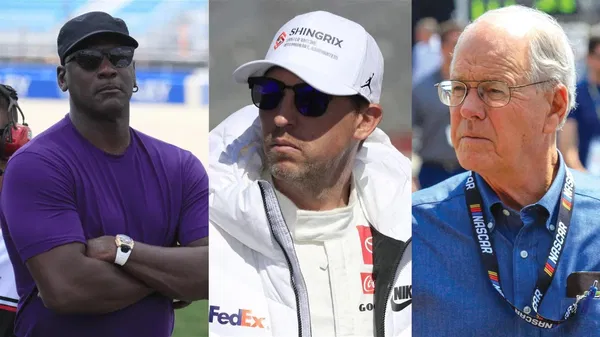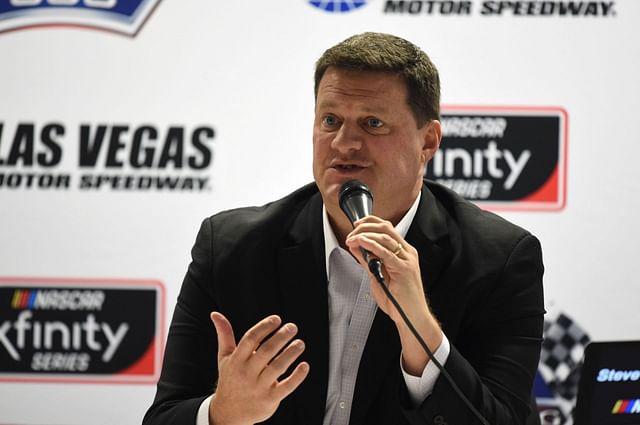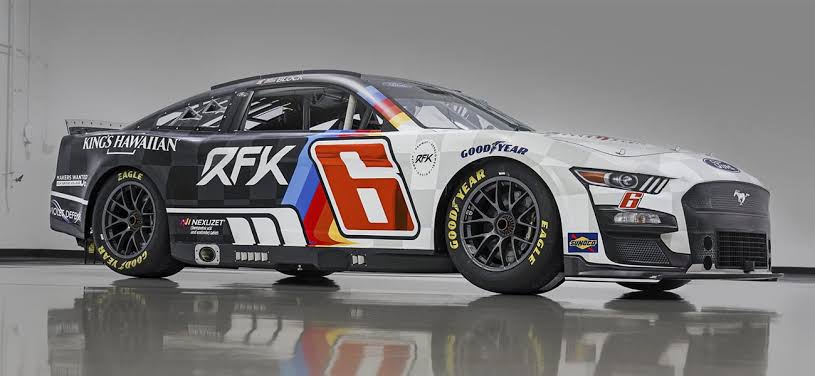In recent months, NASCAR has been engulfed in a significant conflict with its Cup Series race teams, centering around the contentious charter agreement. Despite years of protests from the teams about the existing deal, NASCAR has largely ignored their growing discontent. As the expiration date of the current agreement nears, the teams’ demands have escalated. They are seeking a larger share of the revenue, increased business stakes, enhanced executive authority, and permanent charters. Although NASCAR made some concessions regarding revenue share, it has largely dismissed the other requests, leading to a considerable rift between the governing body and the teams.
Two teams, 23XI Racing and Front Row Motorsports, have emerged as the primary challengers against what they view as oppressive practices by NASCAR. Their decision to protest, despite the substantial risks involved, is particularly notable. According to a NASCAR insider, this confrontation is expected to intensify as both sides dig in their heels.
Jim France, NASCAR’s CEO since 2018, is known for his traditionalist approach, a legacy from his father, Bill France Sr., and his brother, Bill France Jr. France’s tenure has been marked by a reluctance to deviate from long-standing practices. Recently, he imposed a stringent ultimatum on the race teams: they had to sign a new 105-page charter agreement by midnight on a Friday to secure charters for the 2025 season. This demand was met with significant backlash. One team owner described the situation as akin to “putting a gun to our head,” a stark illustration of how coercive the terms were perceived to be.
Out of 15 race teams, 13 agreed to the new charter terms, but two teams—23XI Racing and Front Row Motorsports—chose to reject the deal. The decision by Denny Hamlin and Michael Jordan of 23XI Racing, alongside the unexpected rejection by Front Row Motorsports, has highlighted the deepening divide between NASCAR and the teams. Hamlin and Jordan, known for their vocal advocacy for a fair charter deal, opted to risk their position rather than accept what they considered unfair terms. Eric Estepp, a commentator with deep insights into NASCAR’s inner workings, found the decision by Front Row Motorsports particularly surprising, especially given the team’s recent investment in purchasing a charter from Stewart-Haas Racing for $20-25 million. For Bob Jenkins, the owner of Front Row Motorsports, the terms were deemed unacceptable and worth fighting against.
Both teams have expressed considerable frustration over what they view as an unreasonable process. Jenkins criticized the unrealistic timeline of receiving a 105-page contract late Friday night and being required to sign it by midnight. This tight deadline, Jenkins argued, created an unfair and untenable situation. Both Front Row Motorsports and 23XI Racing have voiced their discontent with NASCAR’s perceived disregard for their concerns. They argue that instead of advancing discussions, the process has regressed, leading to further alienation and dissatisfaction.
The situation now seems poised for a legal showdown. Estepp has suggested that 23XI Racing and Front Row Motorsports might consider legal action against NASCAR. He pointed out that they could argue that NASCAR’s actions reflect monopolistic practices, although such legal proceedings could be expensive, lengthy, and contentious. Legal experts, including Bob Pockrass, have indicated that there might be a robust case against NASCAR if the organization attempted to revoke the charters from the protesting teams. Pockrass suggested that such a move might not be viable for NASCAR in court, given the potential legal ramifications and the scrutiny it would attract.
The ongoing dispute has left the future of the teams and their charters in a state of uncertainty. NASCAR’s response to the protests and the potential legal challenges will significantly impact the resolution of this conflict. For now, the standoff continues, with no clear path to resolution in sight.
As the situation develops, stakeholders across the NASCAR community will be watching closely. The outcome of this conflict could have far-reaching implications for the sport’s governance and the relationship between NASCAR and its teams. The teams’ willingness to challenge NASCAR’s authority and the potential legal ramifications underscore the seriousness of the rift. The resolution of this dispute will likely set important precedents for the future of NASCAR and its charter agreements.
In conclusion, the growing divide between NASCAR and its teams, highlighted by the recent disputes over the charter agreement, marks a critical juncture in the sport’s history. As both sides prepare for what could be a protracted and contentious battle, the future of NASCAR’s charter system—and the broader dynamics of the Cup Series—hangs in the balance. The coming months will be crucial in determining how this high-stakes conflict will be resolved and what the future holds for NASCAR and its stakeholders.
Michael Jordan 23XI Send Strong message to the France Family’s Monopoly With 3 bold statement: “The Teams is More Divided Than Ever”




